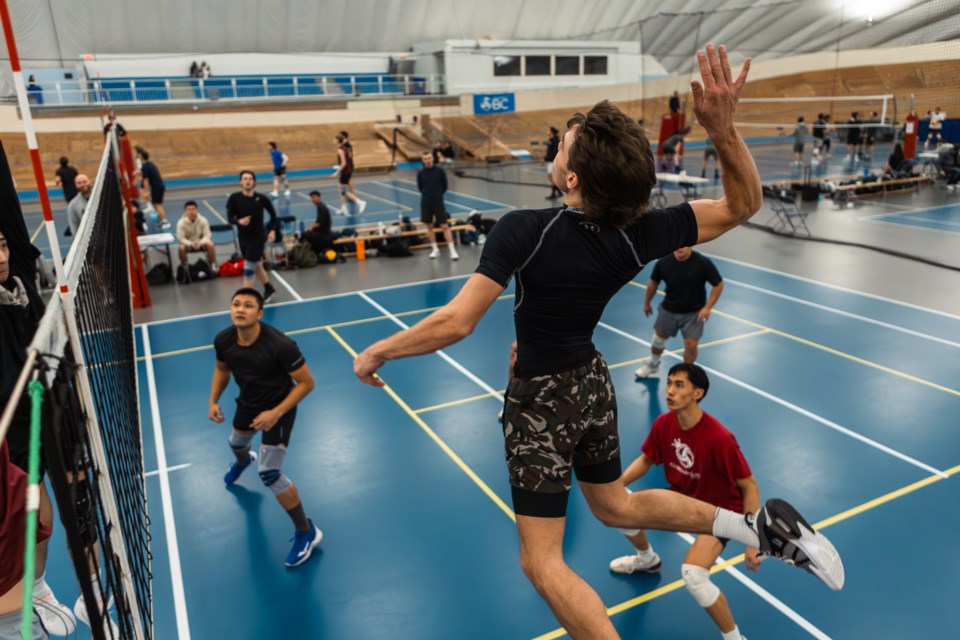There is a myriad of pressing issues shaping our province, including concerns around affordability, quality of life, housing, crime and health care. Sport could help change the game as its benefits extend beyond individual health and wellness. Sport can serve as a generator of social capital, creating benefits across a broad spectrum of societal goals, including child and youth development, crime prevention, economic development, environmental sustainability and social inclusion.
Sport has so much to offer—yet much of its tremendous potential remains largely untapped. The recently published “Towards Sport 2.0 Hope on the Horizon Impact“ report highlights that we need to shift the narrative around sport from being a privilege to a right. Establishing sport as a right elevates the importance of creating fair, safe, accessible and inclusive sport for everyone.
A collaborative effort is required to ensure community sport is inclusive and accessible to all, and this necessitates support from government. There hasn’t been an increase to core funding for amateur sport in B.C. since 2010. If inflation is about two per cent annually, we now find ourselves in a place where we would need an additional 30 per cent in funding to have the same buying power to support sport that we had 15 years ago.
We know that quality of life can be strengthened with investments in community, health and wellness—the things that make us stronger together. We also know that in B.C. we love sport. Across our province, we have:
- More than 815,000 sport participants;
- Over 80 provincial, disability and multi-sport organizations leading amateur sport in communities;
- 90,000-plus high school students participating in school sport teams;
- More than 25,000 Indigenous participants in sport; and
- Over 460,000 volunteers rallying at all levels in support of amateur sport.
This doesn’t include the countless others who engage in organized sport through municipal sport programs, recreation centres, social clubs, non-profit and for-profit organizations, and community sporting events.
Internal polling conducted by Sport BC suggests how sport as a standalone issue isn't on people's radar as a priority in the provincial election. However, when people learn how it connects to student success, safety, wellness, mental health and the economy, support increases significantly.
Sport infrastructure is a hub for health, connection and community, and core funding is required to build and improve that infrastructure in our communities. We need sport to be a priority on each candidate's platform. We need the parties and candidates who will form the next provincial government to share Sport BC’s commitment to sport and commit to $500 million over five years to build new facilities and increase accessibility. We also need them to commit to closing the gap with a 10-per-cent increase in core funding for sport.
Since 1966, Sport BC has been bringing together leaders across sport disciplines to create a unified voice for amateur sport. Our organization and members work hard to create accessible sport experiences that contribute to a healthy and thriving province. We invite people to start talking about sport and the role it plays in B.C.'s future, and are asking people to connect with their local candidates to see if and how they support sport.
When it comes to sport, we’ve all seen the pride that is generated from big wins like bringing home medals from the Olympics and Paralympics, and the significant economic contributions generated by sport tourism and elite events like FIFA.
These successes would simply not be possible without a strong community-based amateur sport sector. The “Hope on the Horizon” report highlights how more than 90 per cent of Canadians believe that community-based sport can be a positive influence in the lives of children and youth. However, less than 20 per cent of those surveyed feel sport is living up to its full potential.
We need to enable community leaders, policymakers and businesses to unlock the tremendous potential that lies within our sport communities. With increased resources, we can improve the quality of amateur sport experiences throughout the province. This in turn can protect public health, strengthen communities, improve social inclusion, reduce crime, decrease school drop-out rates, prevent and manage disease, and accelerate economic development, among so many other benefits.
The value of sport has no limits. It’s time we start talking about how we can make it accessible to all—for everyone’s benefit.
Rob Newman is CEO of the non-profit sport federation Sport BC.



